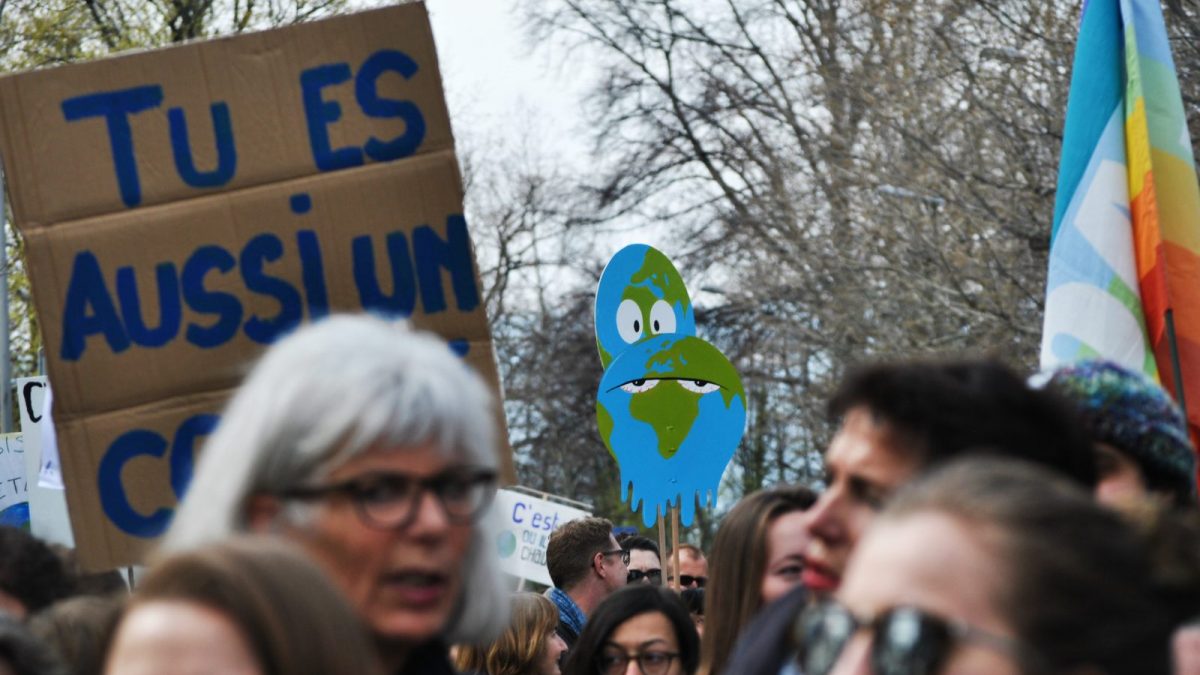
Why do we make each other so ill by polluting the air?
February 6, 2019
Lorraine Cavanagh on the case of Shamima Begum: an unrepentant prodigal
February 20, 2019Today’s youthful Climate Strike shows the immense gap between what young people are concerned about and what governments are doing. It is as though governments – not just ours, but most of the ones most responsible – are simply failing to address the urgency of the situation as described by the world’s climate scientists.
This post asks about the role of spiritual values. There has been a great deal of Christian literature arguing that Christians should be concerned about the environment. But should Christian concern be any different from everybody else’s concern?
Secularists can argue that we want our children and grandchildren to live healthy and happy lives; if there is no God, our values are our own creation so what we want is what we should seek to achieve.
Of course there is a flaw with this. Who are ‘we’? Popular environmental concern is motivated by the fact that the most powerful people in the world are not addressing the problems. If we create our own values, so do they.
Can Christianity do better? I think it can, but it can also do worse. The reason for both is that the ruling classes of humans are not the highest moral authority. God is. How we conceive of God makes all the difference. In what follows I draw on a wide range of scholars; references are in my book Why Progressives Need God.
Better Christianity
In order to understand what our predecessors believed, we need to rid ourselves of the modern concept of ‘religion’ as a disconnected, self-sufficient feature of society. Before modern times beliefs about the divine permeated all life – individual, social and national.
All societies have some way of engaging with their deepest questions: Why are we here? Who created us? For what purpose? How should we live?
In ancient Mesopotamia the dominant answers, as established by the ruling classes, are known through surviving texts. The gods created humans to do their housekeeping; like human rulers, they wanted someone else to maintain the buildings and cook their food. As long as we burn sacrifices and look after the temples, we will continue in existence. Plagues, floods and military defeat are divine punishments for failure to do our duty.
It was a recipe for exploitation. The peasant farmers produced the sacrificial animals, the ruling classes ate the meat.
This account was recited at the New Year festivals In Babylon in the 6th century BCE. Among the people who heard it were probably some Judean exiles. The first chapter of Genesis may well have been set in its present form by some of the exiles, as an alternative answer to those questions.
Genesis 1 tells us that we have been created by a single god who needs nothing from us. Creating us was an act of pure blessing, so that we may live happy and fulfilled lives. The same god who created us has also created the world, filling it with all the things we need. Provided nobody takes more than their share, there is enough food for everyone and the environment will renew itself every year.
Most governments don’t like this, as it tells them not to accumulate wealth and power for themselves at the expense of others. The biblical texts survived in an unusual situation. The Persian Empire allowed Judah self-government, on the basis that it had an unusual god with a lot of precise laws. There was a corollary: although all humans were created by the same god, Jews were God’s chosen race.
Centuries later the first Christians inherited the monotheism but abandoned the idea of a chosen race. So also did the first Muslims later again. The point is that there is nothing wrong with the environment as God has created it. When things go wrong, it’s because humans are doing the wrong things. So the answer to the question ‘How should we live?’ is ethical. It’s not about altering the environment. It’s about caring for each other, sharing resources so that everyone has enough.
Worse Christianity
Christianity has varied widely. Christian emperors didn’t want to blame themselves for the state of their empires. Suffering and tragedy must be caused by divine authorities: God did this, the devil did that, one tricked the other and that explains why life isn’t better than it is.
Worse was to come. From the fourteenth century onwards western Europe became more urban. Standards of hygiene in the towns were appalling. There followed three centuries of persistent plagues. Poor hygiene wasn’t seen as the cause. There were two influential responses: God is angry, and the environment is to blame.
God is angry
If God is so angry with us, we must be dreadful sinners. The Church had long taught that eternal hell awaits Jews, heretics and Turks; but what if God is angry with us too? Church leaders often made the most of people’s fears. The intensity of suffering in hell increased with the imaginations of preachers. People often spent their lives in terror of the afterlife. Come the Reformation, it looked as if at least half of Christendom was destined for hell – but which half?
Intense suffering for eternity, after you die. If you take that seriously, you really aren’t going to worry about the state of the environment in this passing world. From the sixteenth century onwards western church leaders, Catholic and Protestant alike, focused their teaching on the individual’s relationship with God. The environment ceased to be part of the relationship; it was just a backdrop to the me-and-God scene. It is this tradition which motivated some church leaders, in the second half of the twentieth century, to denounce environmental concern as anti-Christian.
The environment is to blame
When philosophers describe the history of environmental destruction a special place is awarded to Francis Bacon, an English government minister at the beginning of the seventeenth century. Bacon inverted Augustine’s theory of the Fall.
Augustine interpreted the story of Adam and Eve as a primeval Fall; the world started off perfect but sin entered it. This Fall affected humans but left nature in all its glory as God’s good creation. Bacon, on the other hand, taught that nature had fallen, but God had given humanity the ability to put it right. The means were science and technology.
Since Bacon’s time secular philosophy has abandoned the idea of a Fall and replaced it with an even more pessimistic account. If there is no God, we and our environment are the products of impersonal, unthinking, unintending laws of nature. We humans, unlike the laws of nature, are capable of thinking things through. We should be able to improve on nature.
This Baconian tradition treats the natural environment as nothing but a resource, to be used however we want. The human mind, on the other hand, gets its apotheosis: ‘we’ (our scientists, our governments, whoever we trust) are in the process of taking control of the world and making it better.
This is the philosophy underpinning the environmental destruction that now troubles us. It is caused not by our failures but by our successes – at doing the wrong things!
Secular environmentalism
Evolution to the rescue. It is now clear that the natural environment is absolutely essential to human life, in many ways we have only recently discovered; and probably in a great many more ways we are yet to discover. We mess with it at our peril.
Correlatively, the human mind isn’t so capable of knowing how the environment works, let alone improving on it. The human mind is a development out of something like chimpanzee mind: it has developed to know certain things but not everything. We are not designed to be masters of the universe. Both evolutionary theory and religious faith tell us we have been designed to live within the constraints of the natural environment.
The similarities
On a practical level, Christian concern for the environment has been just like secular concern: a response to scientific warnings. Most people, when they accept the scientific evidence, are concerned about it whether or not they have any kind of religious faith. On a practical level, we have the same reasons.
This means that Christians and atheists can work together for political change, for better education, and for campaigning groups like Extinction Rebellion. We are doing the same kind of thing. We value our lives, we want the best for future generations, we see the need for change.
The difference
The difference is that religious believers have a stronger philosophy behind their concern. We share the same values – or at least, near enough the same values as far as the environment is concerned. But how do we justify our values? What makes us think we have the right values?
On this point, atheist concern is weak. If there is no God, then all our values are human constructs: we create our own values. But it is quite clear that different people have different values. We in the industrialised West are governed by people who are not responding appropriately to the threats to our environment. They are more concerned about economic analyses, or Brexit, or jobs. To say that we create our own values is to say we will always be in conflict over different values.
Christians – and more generally people who believe in the divine – can appeal to a moral authority higher than every human, who knows which values are best for us. We can disagree about what God’s values are, as we always have done; but we accept that there are right answers which transcend any one human being, however powerful.



